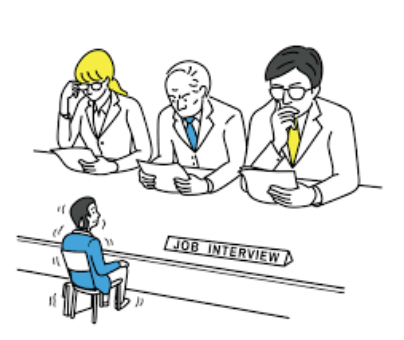The Interview Before the Big Interview

Teaching has always been my goal after my Bachelor of Music, and to achieve this it requires me to study a postgraduate certificate in education (PGCE). This work experience module is an opportunity for me to see what life as a teacher would look like, and the simulated interview was an opportunity to see how I interview, and what I need to improve on for my PGCE interview.
Today I will be using the Gibb’s reflective model to process how my simulated interview went, and the feedback I was given. The steps of the Gibb’s model is a way to simplify mindfulness and reflection into a clear, systematic structure. (Devet, B. (2020)
After speaking with my supervisor about learning outcomes for the interview we decided to use this interview as preparation, to learn my strengths and weaknesses during interviews and decipher what I need to improve on. The learning objectives we came up with were to focus on using the STAR technique to answer the questions. This requires you to identify the context and background of your answer, the challenges faced, what I did in the situation in question and the benefit I brought to the situation. Another benefit of answering interview questions using the STAR method is keeping my answers concise and not rambling. Another aspect I wanted to focus on was my body language, keeping eye contact and not fidgeting around, as this has always been an issue for me.
First impressions matter, I wore a teaching appropriate outfit with my hair up and out of my face and minimal makeup. I arrived at the interview room five minutes before the interviews were due to begin. It was only as I left the room to begin my interview that the nerves kicked in. However, when my name was called I greeted the interviewer with a smile and a firm handshake to seem confident.
The interview lasted fifteen minutes, and I was asked five questions.“What qualities do you have that make you a good teacher?” “What experience do you have working with children?” “What knowledge do you have of the Key Stage Three Northern Ireland Curriculum?” “What extracurricular activities could you bring to a future employer?” The final question was “How do you continue to develop your personal musicality”?
The first question asked threw me off guard slightly, as I didn’t have an idea of an answer off the top of my head. I began answering that I have a good sense of empathy and can sense when a child is in need of extra support, however I began tripping over my words as I speaking too quickly. I looked up at the interviewers and said “Wow this is stressful”, one replied professionally “just take a breath and answer the question”. This reminded me that this was an interview and I just needed to calm down. This wasn’t a good first answer, however this allowed me to see the work and interview preparations I need to complete. With more preparation work this shouldn’t happen again, however if it does the advice of taking a breath and even asking for the question to be repeated as I calm down.
The next set of questions went much better. Due to my placement being at Laurelhill Community College Lisburn, I was able to reflect on learning from my placement and identify new skills I’ve learnt throughout this year. I made sure to name the schools I worked in, and speak about what lessons I’ve taught and others I had observed. In the peer review after my interview it spoke about how it was good I was able to make the content so personal, relating everything back to an experience I have had in the education sector. The classic teaching question of extra curricular activities was well answered also. I was able to list all the instruments I can play and how I can relate them to different music groups, the extra-curricular activities I assisted with during my placement and the sports I played in school and would be more than happy to support. The only negative comment the peer review had was that I used the phrase “help out” a lot, but didn’t embellish on how I could help. The example they gave was I said I play the violin and could help out with orchestras or traditional Irish bands within schools, but didn’t embellish that I could help tune string instruments. This was something I took on board and will remember to do in future interviews.
I felt the hardest question I was asked was “What knowledge do you have of the Key Stage three Northern Ireland music curriculum”? I didn’t know the correct answer, so instead I spoke about what lessons I have taught within key stage three, and what topics the students enjoyed. I made the content personal, answering that I had ran both performance and composition classes and began planning for listening classes after half term.
“How do you continue to develop your personal musicality” was the final question. I spoke about how I teach piano lessons, allowing me to go back to basics with my own playing, and how my Mum is always sending me new songs she wants me to learn, this got the interviewers laughing and left a good last impression.
When the interview was over I stood up, shook everyones hand and thanked them as I walked out of the room. I felt the interview went well, even with my slip up at the start. I was called back in and we went over my review sheet. I was given four out of five for both content and presentation scores, and a five out of five for my reflection score. I found my strengths were speaking on my experiences, what I have studied and what I have taught in a classroom setting. Also I had confident body language, good posture and eye contact, however my hand fidgeting ended up being a little distracting to the interviewers. My weaknesses were I would use buzzwords like communication but wouldn’t elaborate on how the word associated with me. With more preparation work and using what I learnt during this simulated interview I believe I will be able to communicate professionally my skills and relate my studies to the work environment.

References
Devet, B. (2020) ‘Gibbs’ Reflective Cycle for Writing Center Training’, WLN: A Journal of Writing Center Scholarship, 44(9/10), pp. 18–25. Available at: https://search-ebscohost- com.queens.ezp1.qub.ac.uk/login.aspx?direct=true&db=eue&AN=142995242&site=eds- live&scope=site (Accessed: 16 November 2022).
Calming The Nerves
You May Also Like

Job Interviews: Selling Yourself For A Pay Cheque
24 February 2023
The World of Theatre upon Reflection
30 November 2022
